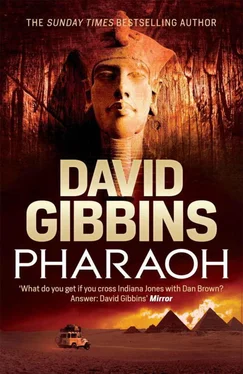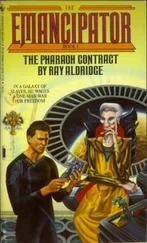He left the two sentries at the parapet and slid down a crack in the ancient masonry wall that concealed him from the opposite cliff but gave a clear view of the scene below. A pair of rocks jutting out into the river formed a natural gateway into the cataract, constricting the river to a muddy torrent as it flowed into the pool where the whaleboats were collecting. Confronting the torrent was a solitary man in a canoe, inching his way up against the flow, a hawser line coiled behind him. Once he had made it through, he would find a place to tie the rope off, and then teams of men would use it to haul up the whaleboats, dozens of which were now milling below the cataract, waiting their turn to follow. Mayne could tell that the man in the canoe was a voyageur, from his measured stroke along one side of the boat, the paddle twisted each time to act as a rudder, rather than the frantic paddling from side to side of the British soldiers, who had little idea how to control a canoe. He well remembered his own first efforts as a nine-year-old boy on the Ottawa river, and that moment when he suddenly realised he was one with the boat; that he could use it as an extension of himself.
As he watched the voyageur work his way up the torrent, unswerving and utterly focused, he saw a man on the jutting rock above him hurl a stone trailing a thin line to the rock on the opposite side, where it was caught by another man and then passed to a team of sailors, who hauled across a thick hawser that had been attached to the line, looping it around a rock and making it fast. At the same time, a procession of soldiers stripped to the waist, followed by west African Kroomen, shiny black and wearing only loincloths, made their way up among the rocks to the point where the canoeist would shortly attach his rope, beyond the torrent and in the first pool above the rapids that would provide the next staging post. On a rock above it all, the sergeant major in charge of today’s efforts had positioned himself ready to bellow orders and encouragement as the first whaleboat was brought into position. After weeks of trial and error they had brought the procedure to a fair state of perfection, but even so every day brought new challenges, new obstacles to overcome in the rocky bed of the river, and all the time the level of the Nile was dropping inexorably, making any kind of progress a challenge at best.
Mayne recognised the man who had hurled the line as his friend Charrière, the foreman of the Mohawks. He was wearing the corduroy trousers and check shirt that Wolseley had provided for them, and his long black hair was braided down his back. Among the Mohawks, Charrière was known by his Iroquoian name, Teonihuapataman, meaning ‘he whose blood flows like the river’, but he also bore the French name he had inherited from his grandfather, a voyageur who could trace his ancestry back to the first adventurers from France who’d gone to the New World more than two centuries before. As part of the Iroquois Confederacy, the Mohawks had fought alongside the British in the American War of Independence, and again in the war of 1812, but since then their reputation for brutality had softened as they intermingled with the Algonquian people of the Ottawa valley, becoming voyageurs in the fur trade and logmen on the river. To Mayne, though, who had lived with them and watched them hunt and explore, they still had an edge to them, men whose forefathers had been steeped in the blood of savage war.
Mayne remembered Charrière’s disquiet when they had met again on the Red River expedition. Mayne had been away at school and then at the military academy in England, and he had cut the long hair that he had grown as a boy. To the Mohawks, hair retained memories, and to cut it was to sever a link with a past in which Mayne had been adopted into the tribe and shared the coming-of-age rituals with Charrière as they became adolescents. Their friendship had endured, and had been rekindled here in this most unlikely of places, but there had been a distance between them; Charrière had never again called him by the Mohawk name that Mayne had been given as a boy.
He watched a sailor curl his body around the hawser and begin to pull himself across the gorge towards Charrière, inching his way over the torrent. On Charrière’s belt he could see the coiled kurbash, the hippo-hide whip that Shaytan had given him when he joined Mayne on a previous foray into the desert. It had belonged to Shaytan’s ancestors, passed down from distant antiquity; in return, Charrière had given him a polished stone macehead he carried in his leather bag, a weapon his grandfather had used during the American War of Independence. Where the whip had once had a metal tip, long since rusted away, Charrière had spliced in a razor-sharp flint he had brought from Canada.
Something had distracted Charrière’s attention from the sailor on the hawser. Mayne watched him unhitch the whip from his belt and uncoil it, and then saw the tip flicker across the pool below and snap against the surface, causing a ripple to spread out towards the boats around the edge. Mayne raised his telescope and trained it on the pool, uncertain whether he had seen a dark shape beneath the muddy surface where the whip had struck. Two shots rang out from below, the bullets hissing into the water to no obvious effect. No one had yet with certainty seen a crocodile in this pool, but the soldiers believed one was lurking there, making washing and drawing water a hazardous enterprise. Mayne was not entirely convinced, but it was another reason why he had decided to forgo any attempt to cleanse himself before setting out for Wolseley’s camp at Korti.
Jones came up beside him and peered down. ‘I’m sure I saw it,’ he said in a hushed voice. ‘It’s the monster the Sudanese river men talk about.’
‘You can’t be sure,’ Mayne said. ‘It could have been a whirlpool, or one of those giant river carp.’
Jones shut his eyes, reciting. ‘“When he raiseth himself up, the mighty are afraid. Round about his teeth is terror. In his neck abideth strength, and terror danceth before him. His neesings flash forth light, and his eyes are like the eyelids of the morning. Upon earth there is not his like, that is made without fear . ” The leviathan, sir, from the Book of Job.’
Mayne lifted his eyebrows. ‘You remember that well. You’ve missed your vocation. You should have been a preacher.’
‘The leviathan’s not some ancient mythic creature, sir, it’s a crocodile. That word neesings , in King James’ time it meant snortings, well almost. I recited it to our Egyptian interpreter, and he said that’s what crocodiles do, they have a habit of inflating themselves and discharging heated vapour through their nostrils in a snorting kind of way, and in the sunlight it sparkles.’
‘It seems you’ve become a natural historian, too. You ought to take care. Natural history and preaching rarely mix, I find. Your congregation will want the fire-spitting dragon of the deep, Satan at hell’s mouth.’
‘It’s that picture Mr Tanner showed me, sir. I just can’t get it out of my head.’
Mayne turned back to the river, amused. One of the officers, Lieutenant Tanner, the engineer in charge of the boatbuilding detachment, had brought along a small library of Greek and Latin literature dealing with the Nile, and one evening the more literary among the officers had amused themselves looking up references to crocodiles in Pliny and Plutarch and Herodotus. Several of them, including Mayne, had left the expedition camp on the way south through Egypt to explore Akhenaten’s capital at Amarna, and had been shown a towering image of the crocodile god Sobek carved into a rock face. Since then it had been imperative among the more sporting officers to bag one, as yet to no avail. Mayne had invited Jones to join them that evening because of his encyclopedic knowledge of the Bible, virtually the only literature he had been exposed to as a boy, and he had quoted those lines from memory. As the port wine flowed and he grew bolder, he told them a story he had heard of how a giant Nile crocodile thrashing its tail to pick up speed had leapt on land and chased a woman up a tree, dragging her down and into the water, never to be seen again. Tanner had gone one better and pulled out a print cut from The Life and Explorations of David Livingstone , hot off the press when he had left London; entitled ‘A Frightful Incident’, it showed a voluptuous naked woman swooning on her back on a rocky islet in the Nile, a crocodile the size of a dinosaur poised as if to ravish her. Jones had sat speechless, staring at the image with his mouth open, and then had rushed with it down to his mates around the fires a safe distance from the river, all of them in equal measure terrified of crocodiles and starved of female company in the six weeks since they had been allowed to visit the dens of Cairo on the voyage south.
Читать дальше












